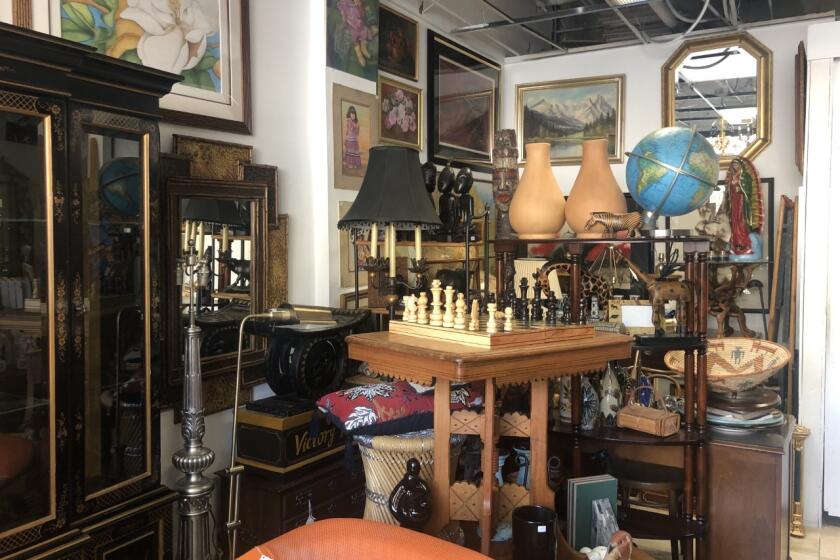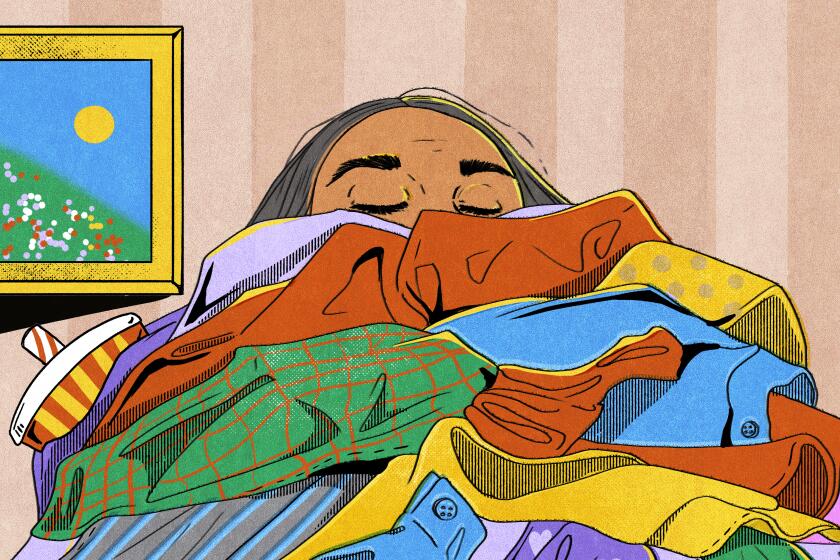
When I asked my mother what she might like for her birthday this year, she quickly texted back: Nothing. We are downsizing.
My parents already live in a small house — a former fishing cabin on the edge of a lake. Our family moved a few times when my brothers and I were growing up, our childhood belongings pared down at each step. My parents relocated after we graduated from college, stripping their belongings down further and shipping what furniture was left to each of us kids. I got the Sellers Hoosier, a wooden hutch with a built-in tin flour bin and a metal bread kneading shelf, now more than 100 years old, that my great-grandmother used to bake on.
I wondered what was left for them to downsize. And then it hit me: Were they doing the Swedish death clean? “Döstädning: The Gentle Art of Swedish Death Cleaning” is the bestselling book that sparked a TV show and popularized a decluttering technique that has people clean up their belongings before they die, so their friends and family won’t have to. My mother will be 80 this year, my father 82 — was there something they weren’t telling me?
Every once in a while, you stumble across a new word that perfectly describes where you are in life. For me, that’s kipple.
It turned out that my parents hadn’t seen the show or read the book. The real problem was that they had just inherited a bunch of “stuff” from my aunt, who has dementia and was moving into assisted living. My mom told me about all the things my aunt had treasured and saved that now sat in cardboard boxes: plates and linen dish towels commemorating the British Royals; Hummel figurines (and some fakes); newspaper clippings. There were also letters, photos, notes and journals. Birthday cards. Those personal items we save, private and special only to us. Our “stuff.” My aunt had never intended for anyone else to see it or have to deal with it.
My mother didn’t think it was appropriate to throw any of it away, not while my aunt was still alive. “She asked that some of the Princess Diana things be sent to you,” Mom confessed. “But,” she whispered, “I don’t think you’d want it.” She’s right, I don’t, but the larger question is: Who does?
How do you compassionately get rid of the things your immigrant parents hold onto that are piling up in their home?
The idea of döstädning (and the fact that my aunt clearly didn’t get around to it) made me think about all the stuff I’ve collected over the years. When I moved from New York to Los Angeles more than 20 years ago, I couldn’t afford to ship most of my books, so I sent only the most precious, signed editions I had. I also sent the journals I’d written in for years, stuffed with the small details of my life in New York City. What I wore on a first date. A promotion. An unrequited crush. I was moving to Los Angeles for love, but I couldn’t part with these chronicles of all my previous relationships.
Now those journals live in the garage of my family’s Los Feliz house. I know exactly which plastic bin they’re in, even though I haven’t read them since I left New York. If I were to die tomorrow, how would I feel about someone else reading them — my parents, my son, my husband? And if I don’t want anyone reading them after I’m gone, why have I kept them?
This led me to ask my friends and family: Is there anything that you would want automatically destroyed after your death, before your loved ones found it? Most of the answers revolved around sex: naked photos, sex toys, pornography, dirty notes and sexts. Other answers were more comical: A pot stash they didn’t want kids to find; specifically, weed butter in the freezer. The secret family in New Jersey (I think he was joking).
We all know L.A. is the land of reinvention, but the first step to a new you is getting rid of the old by decluttering your home, your closet and even your ride.
Some people revealed that they had pacts with a friend or relative to destroy certain items after their death. I loved the idea of a trusted friend tossing all my buried secrets, until I remembered what happened to Franz Kafka. His friend and literary executor, Max Brod, had been entrusted to burn all of Kafka’s letters and manuscripts after his death — a wish Kafka put in writing, even though Brod told him he wouldn’t do it. Indeed, Brod published the material, and we would not have “The Trial,” “The Castle” or other great works had he followed Kafka’s instructions.
Did Brod have the right to overrule his friend? Perhaps it’s better to ask if Kafka had the right to ask that the manuscripts be destroyed. As an artist, do you owe the world your work, even after death?
My friend Cecil, a novelist, says: “As artists, it’s our gig to keep the embarrassing things that inspire us around. We are complex, and hopefully everyone gets that.” She says her journals would make a “boring read” — but if she asked me to destroy all her works after her death and I found some beautiful piece of writing among them, I would be torn about how to proceed.
Even though I’ve published a memoir and works of fiction that allow readers a glimpse into my life, I still have parts of myself that I don’t want anyone to see. In this age of over-sharing, talking about what I would want wiped out after my death has given me a better understanding of döstädning and its appeal. It’s less about saving our families from having to do the cleaning-up work, and more about applying some small measure of control over how we are remembered by those we loved. Perhaps it’s also a nudge to live a life worthy of remembering — sex toys and all — while we still can.
Cylin Busby is an author and screenwriter. Her latest book is “The Bookstore Cat.”
More to Read
A cure for the common opinion
Get thought-provoking perspectives with our weekly newsletter.
You may occasionally receive promotional content from the Los Angeles Times.













